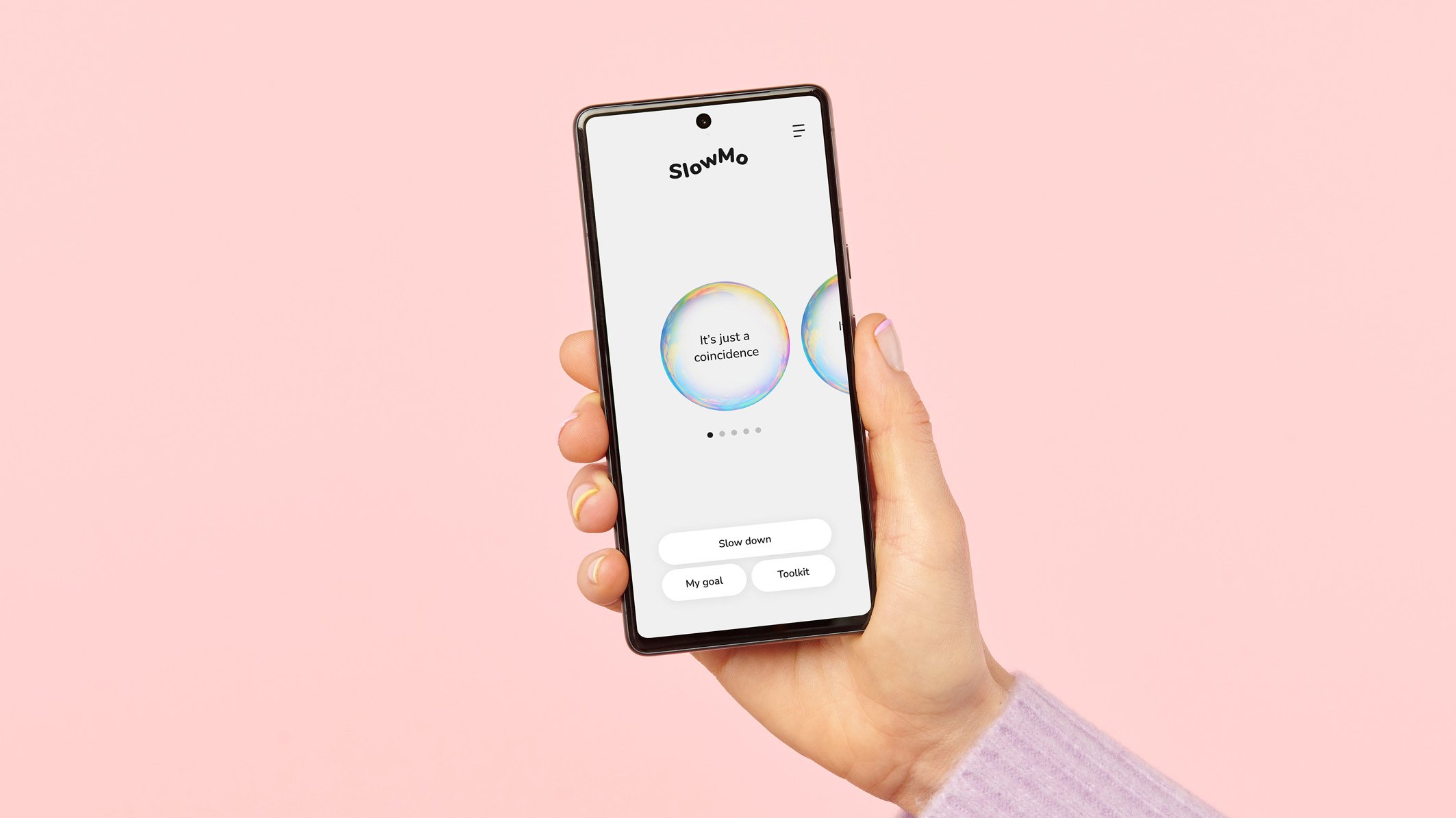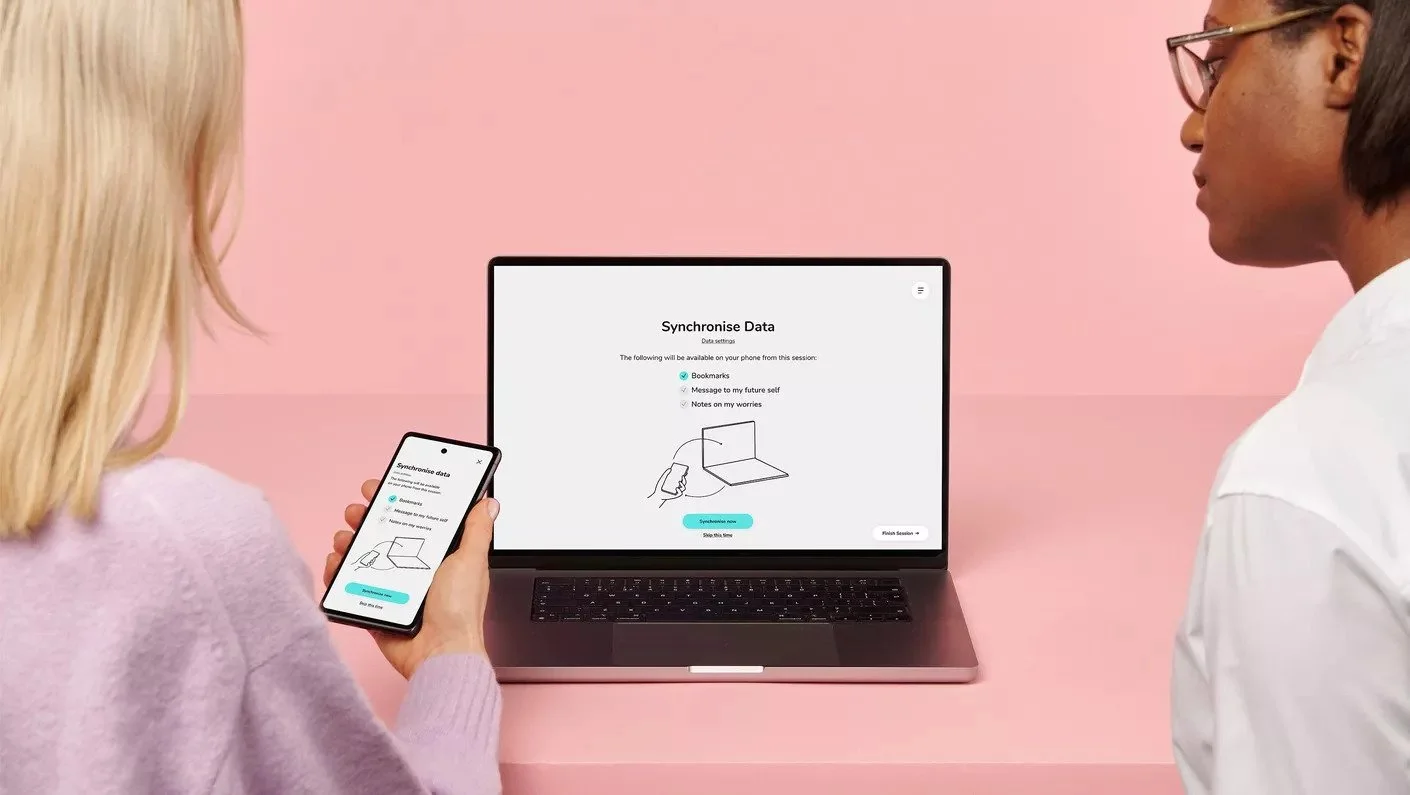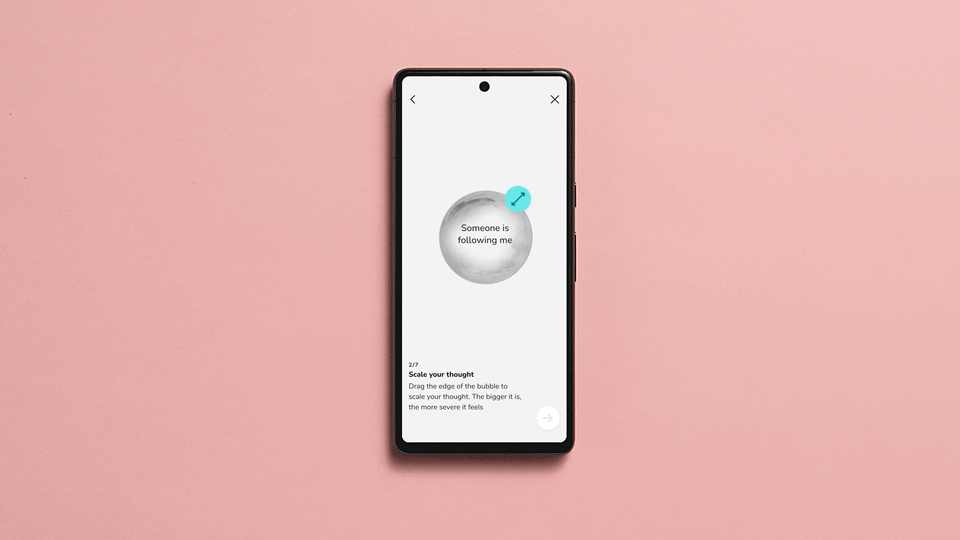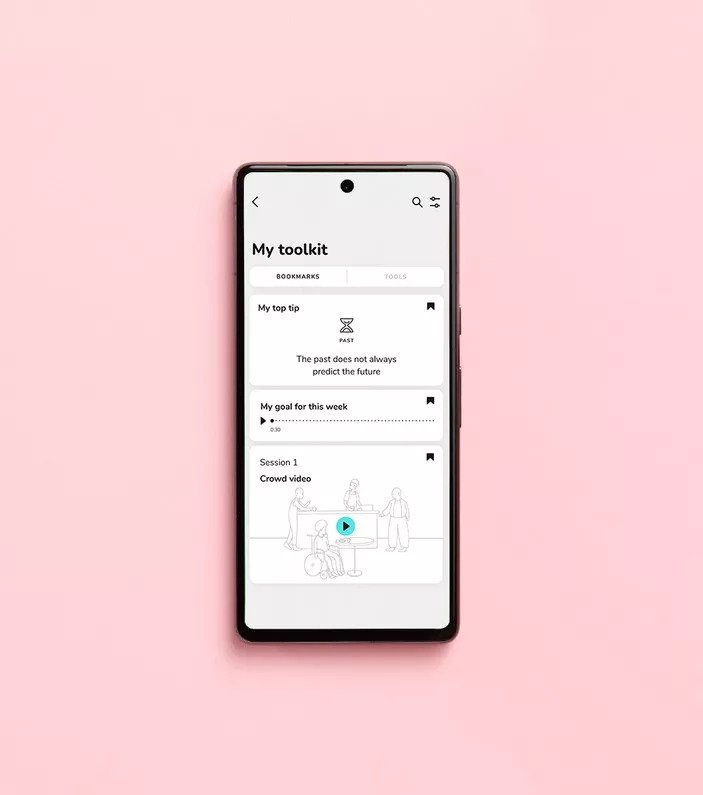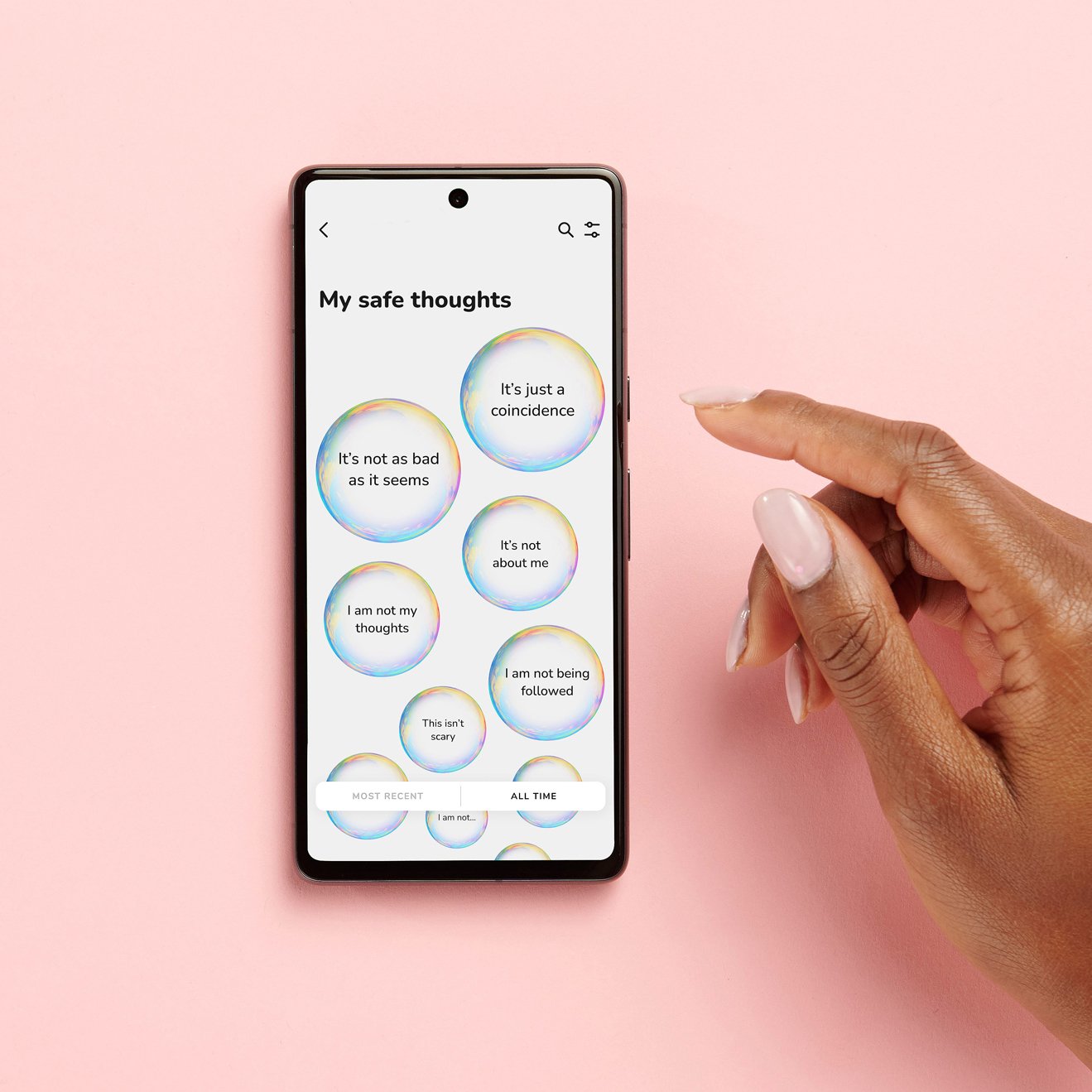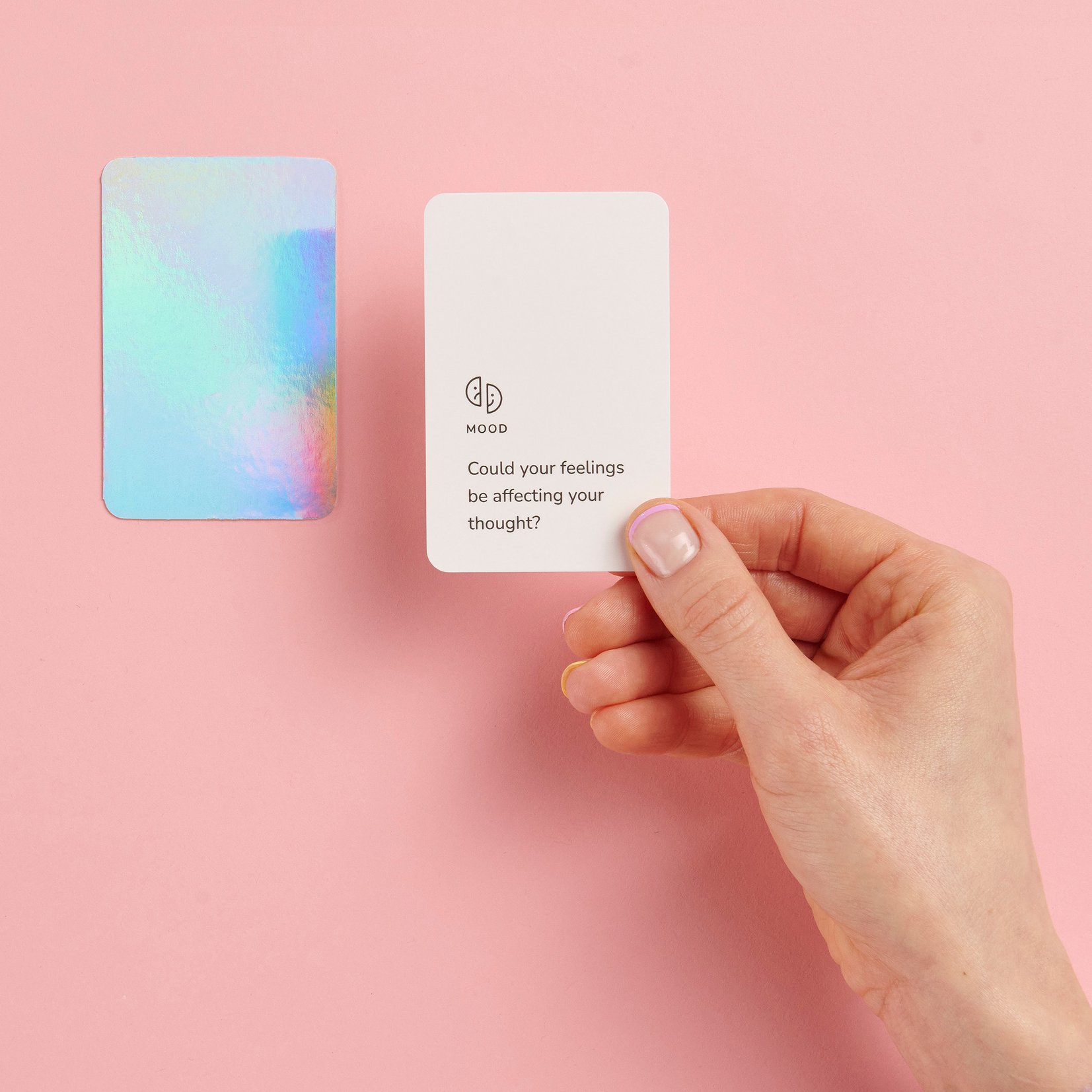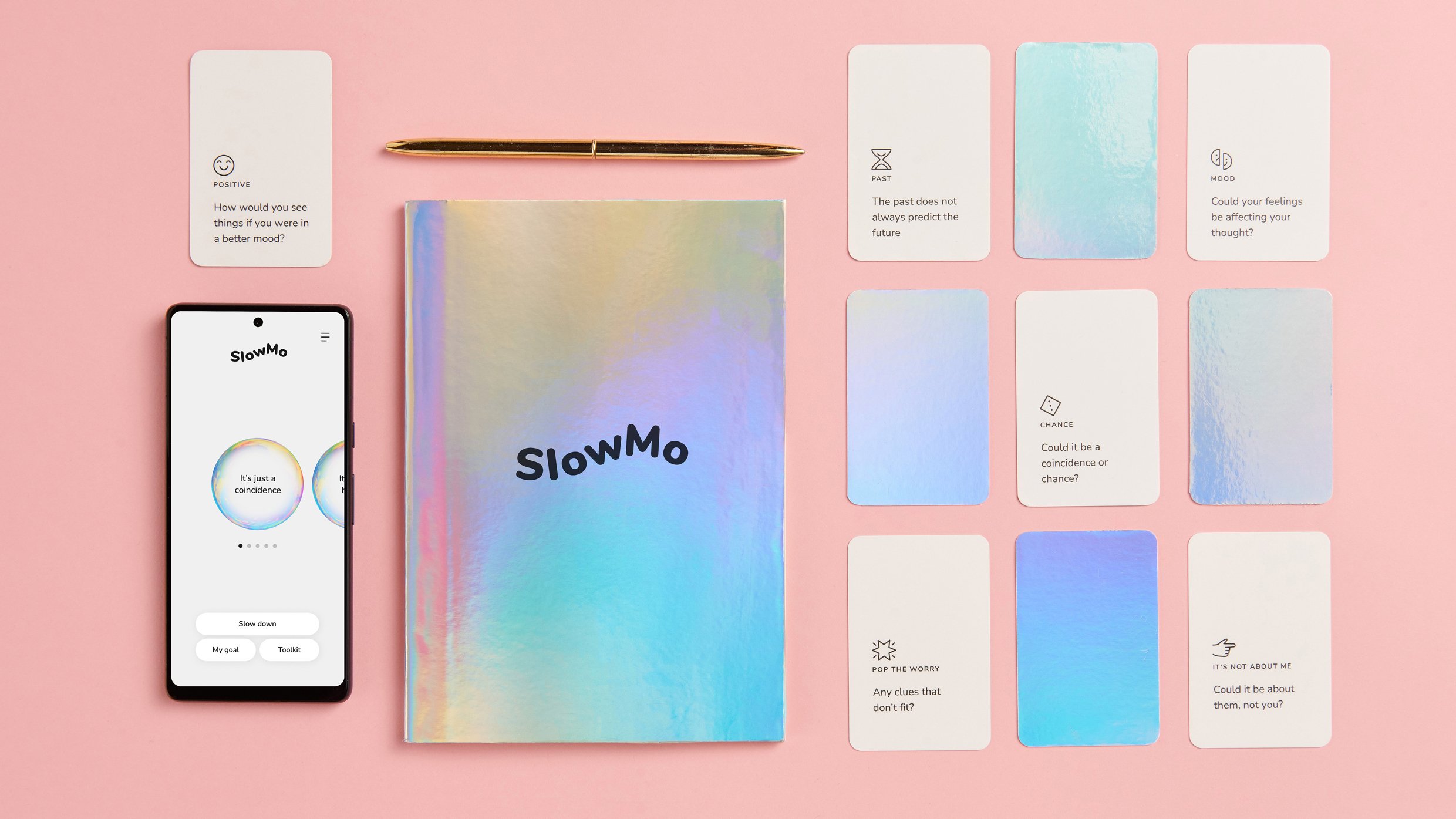
An inclusive therapy service for people with distressing psychosis
Introduction
SloMo is an inclusive, digitally supported therapy service for people with distressing psychosis. SloMo supports in-person sessions with a therapist and provides support in daily life by offering users tangible tips and tools outside of the clinic room.
The project was done in close conjunction with an interdisciplinary team at the Institute of Psychiatry, Psychology & Neuroscience (IoPPN) at King's College London and has been awarded £1.3m in funding by the Wellcome Trust to allow it to be scaled up in three NHS Trusts.
Challenge
Psychosis can severely influence the quality of life, with symptoms including sensory hallucinations, paranoia, cognitive disturbances, and a lack of motivation and focus. The challenge was creating an inclusive app that can be used and understood by people with varying levels of digital literacy, even in moments of severe distress. Besides these issues, obtaining and keeping the trust of users with paranoid psychosis was a key factor in the design of the app.
All rights belong to Special Projects and their client.

Design question
“To design an inclusive and intuitive app and desktop app for the SloMo therapy developed by King’s College London for people with paranoid psychosis.”
Challenges
Digital literacy
When developing the first version of SloMo, the King’s College London team found that a quarter of people with severe psychosis did not own a smartphone.
Hallucinations & loss of reality
Psychosis is characterized by changes in perception and thinking such that people might no longer have a shared reality.
Paranoia
Psychosis often comes with paranoia and a lack of trust in other people but also therapies and technology.
Motivation
Other symptoms of psychosis include lack of motivation, focus, and cognitive disturbances.
Design principles
Inclusive
Ensuring everyone can use the app regardless of their digital literacy, motor ability, and mental state.
Intuitive
Interactions were kept close to reality and simple, so the right tools are accessible in a matter of a click.
Trust
The key was to elicit trust and a feeling of safety every step of the way, which was done by transparency and putting the user in control
Delight
Delight & normalisation were used to alleviate some of the severe stress that patients are under.
A web-app that supports therapy sessions
Slomo takes the user on a journey
The therapy takes the user on a journey in which awareness of one’s own thinking is slowly increased. Each therapy session is represented by a card. The journey is visualized as a continuous line across the therapy sessions that goes up and down, symbolizing the natural process of progress and setbacks throughout therapy.
Easily accessible tools outside the clinic room
The mobile app enables users to access therapy tools on a daily basis
Slowing down thinking
SloMo seeks to help patients notice their worries and concerns, most of which occur when they think too fast, it then provides them with tangible tips and tools to help them slow down those thoughts.
Bubbles
The patients’ thoughts are represented as bubbles. Worries appear in grey bubbles, the size of the bubble indicates how severe the thought is; the opacity indicates how convinced the patient is that this thought is true; and the speed at which the bubble spins represents the thinking pattern of the thought, either fast or slow. Helpful/positive thoughts on the other hand are presented as colorful bubbles, to provide alternate ways of thinking in moments of distress.
Accessible tips & tools
Throughout the Slomo therapy, tips and tools are presented and practiced with the patient. These tools can be bookmarked by the patient for quick access. Safe thoughts can also be saved in colourful bubbles to remind the user of alternative ways of thinking.
Tangible tips & tools
Besides the app, the Slomo therapy tool also contains physical tip cards that users can carry on the at all times for quick tips on ways of reframing their thinking.





